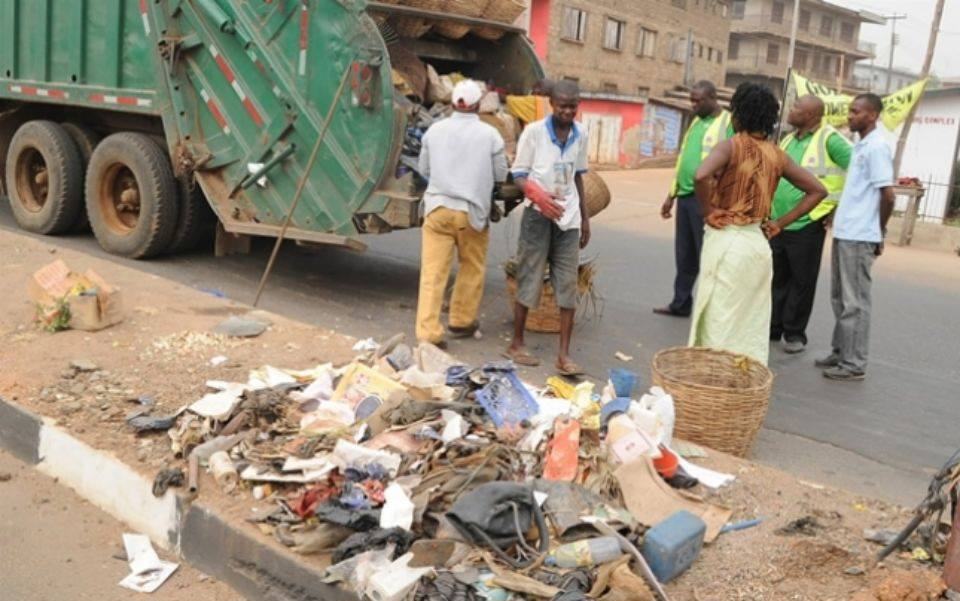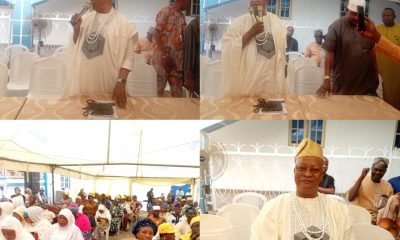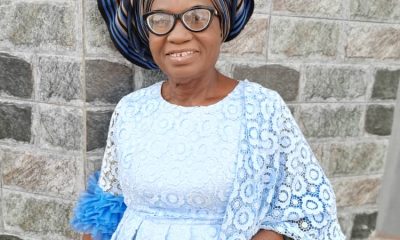Opinion
From Linear To Circular Economy: Turning Waste To Wealth By Isaac Oluyi

There is cynicism in the land. Disillusionment and despondency seem to have replaced hope for many in the land. For many, they cannot see light at the end of the nation’s dark tunnel. It’s all gloom and doom for them. They are simply pessimistic about everything Nigeria and Nigerian! Tell them Nigeria is a land that flows with milk and honey, they will simply shrug it off as a rant of a mad man! It’s that bad! To a discerning mind however, there is endless opportunities in the land.
Opportunities that stem from diverse problems begging for solutions. Apparently, where there are problems there will be opportunities.
The import of the immense opportunities that are yet to be tapped into in Nigeria dawned on me a few weeks ago when I led a team of like minds to produce a documentary on ‘From Linear to Circular Economy: Turning Waste to Wealth’ to be showcased in Dubai, United Arab Emirates later in the year with a view to attracting stakeholders and investors in science, technology and innovation community. The production of the documentary unearthed how richly blessed Nigeria is.
The challenges in the land notwithstanding a lot is still happening in terms of innovativeness and creative ingenuity. While many keep running the nation down, blaming it on real and imaginary reasons, we encountered some ladies in the course of producing the documentary, who against all odds, are making remarkable difference within the circular economy space. They reduce waste to the minimum by turning it to wealth!
The circular economy is a goldmine, not yet fully tapped. As it is, we are still scratching it on the surface. It is one area that can be explored and taken advantage of using both low-end and high-end technologies. It is an economy that the army of unemployed youth can explore. Interactions with some current players within the space reveal that it is not too capital intensive, as what is discarded is what it is being developed into a product of value. Water hyacinth, used pure water nylon, bamboo, among others, are some of the wastes the amazing Nigerians we encountered turn into valuable products. What exactly is a circular economy? It is important to put it in proper perspective for us to have a better understanding of its viability.
A circular economy is an economic system that tackles global challenges like climate change, biodiversity loss, waste, and pollution. Most linear economy businesses take a natural resource and turn it into a product which is ultimately destined to become waste because of the way it has been designed and made. The circular economy is a model of production and consumption, which involves sharing, leasing, reusing, repairing, refurbishing and recycling existing materials and products as long as possible. In this way, the life cycle of products is extended. In practice, it implies reducing waste to a minimum. A close appraisal of the explanation of a circular economy points to how it cuts across all spheres of life as long as waste exists.
This is indeed an interesting economic space that the nation needs to beam its searchlight on.
It is actually heart-warming that we already have some Nigerians operating successfully within this space. I will briefly highlight two or three characters among the key players of circular economy in Nigeria. Let us start with Adejoke Lasisi who turns nylon and textile waste to wealth. Adejoke Lasisi is a Nigerian fashion designer, and environmentalist known for her development of fashion products and designs using nylon and textile wastes. She is the founder and CEO of Planet 3R and Jokelinks Weaving School.
Like Adejoke Lasisi, Achenyo Idachaba turns Water Hyacinth (Eichornia crassipes) which was recognised as an invasive weed to wealth. In collaboration with local craftspeople, she set up a range of products that were woven from the dried plants. She develops products such as a waste basket and a table tidy which were made from plants that are usually only known for being invasive.
Another woman operating within this industry is Tony Joy. She is the founder of Durian Nigeria, a non-profit helping rural communities, especially women and children, turn waste to wealth and elevate their economic status. Durian Nigeria trains women and children in a rural community to make jewellery, furniture cups, and cutlery from bamboo, as well as school bags, and packaging from waste clothes and water sachets.
I am sure there are many more in this space who are doing exploits. This commendable exploit or initiative of turning waste to wealth is a symbol of hope. It is a metaphor of possibilities. It is indeed an indication of how the fortunes of our country, Nigeria, can be turned around. The first step is to believe well enough in the country that we are blessed with abundant natural resources. Being blessed with natural resources is however not enough, except we become innovative with them. It is innovation that will give us the desired edge or the competitive advantage. To make this possible, interventions from government become imperative. Government must not just provide an enabling environment, but must also provide policy direction that will make circular economy robustly viable with many embracing it and the nation earning foreign exchange from it.
The National Centre for Technology Management (NACETEM), an Agency of the Federal Ministry of Science, Technology and Innovation, which provides critical knowledge support in the area of science, technology and innovation management for sustainable development has already set the ball rolling through production of a documentary on some Nigerians turning waste to wealth with a view to giving them global recognitions and attraction of investors to the country. Other stakeholders need to step up the game. No one will do it for us.
For the cynics amidst us, the nation has what it takes to be great. All hands need to be on deck to revamp our economy by redirecting our efforts towards non-oil economy. The current administration is trying in this direction, but Rome was not built in a day. It may take time, but we will surely get there if we will replace pessimism with optimism.
If despite the low-end technology available in Nigeria, the women highlighted in this piece are addressing Sustainable Development Goals (SDGs) such as clean environment, poverty reduction, gender mainstreaming, provision of decent jobs and living, among others through recycling, with high-end technology, a new economy that is completely circular capable of transforming the economy of Nigeria and other developing economies can be created. Waste may stink and effuse stench, but it has a lot of value. It’s time to repackage wastes for optimal value through digitisation. It’s time to turn waste to wealth. It’s time to embrace circular economy and reduce waste to the minimum by maximising its potential for economic and humanitarian benefits.
Isaac Oluyi is a Personal Development Advocate and Head of Public Relations Unit of the National Centre for Technology Management, an Agency of the Federal Ministry of Science and Technology, Obafemi Awolowo University, Ile-Ife.
-

 Opinion5 days ago
Opinion5 days agoDon’t Pull the Plug: Why Nigerians Are Pleading for the U.S. to Extend Its Police Training Program — and Why It Must Synergize With New Military Arrivals
-

 Crime4 days ago
Crime4 days agoVigilante Reportedly Shoots Colleague Dead In Plateau
-

 News3 days ago
News3 days agoRamadan: Osun Cleric Urges Compassion Among Muslims As Asejere Distributes Relief Materials To 537 Beneficiaries
-

 Crime5 days ago
Crime5 days agoMan Shot Dead In Ambush Along Jol-Sho Road In Plateau






